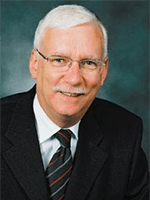
A message from UKCP Treasurer David FitzGerald

David Fitzgerald
I am pleased to have been invited to address UKCP members following my appointment as a Lay Trustee and Treasurer of UKCP on 9 March last. My appointment coincided, almost to the day, with Covid-19 being declared a pandemic, and like everybody else in society I have been preoccupied with the consequences of it since then.
None of us know what the future will bring, and we certainly don’t know how the virus will play out over the coming months. What we do know, however, is that its impact will be with us for a very long time to come – psychologically, financially and socially. Many of the old ways of doing things are being questioned – and in some cases this may lead to positive outcomes.
What is highly likely is that the need for high quality professional psychotherapy will increase. The ways of delivering this may well change but there will be a requirement for more, and varied, psychotherapies. This may mean that clients (and employers) may be more rigorous in their selection of a particular practitioner or service to deliver the required support.
When any of us decides to retain the services of a professional, how do we go about it? Typically, it can be on the recommendation of a trusted friend or family member, or of another professional. The ultimate choice will be determined by a mix of the perceived competence and professionalism of the professional, the standing (or credibility) of their qualification, fees, and, of course, empathy.
Some of these characteristics are personal – the chemistry cannot really be legislated for. However, the perceived professionalism and credibility of an individual practitioner will be materially influenced by the standing and credibility of the organisation to which they belong.
For example, if I wish to select an accountant to advise me, and I have two alternatives, and one belongs to an accountancy institute which is perceived to be blue chip – robust regulation, significant member support in matters relating to accountancy, good supervision – and the other belongs to an institute which is perceived generally to be lax in oversight, not hugely supportive of members etc, which one am I likely to choose? No marks for the right answer!
And to laypeople seeking an appropriate psychotherapist or psychotherapeutic counsellor the process is no different. It is important that the body to which an individual belongs is seen to be reputable, that it regulates its members appropriately, that it supports its members in terms of keeping up to date, etc, and that it represents its members where it matters. From what I have seen, UKCP measures up pretty well.
UKCP responded rapidly to support members when lockdown began – for example, a very swift move to facilitating ways of working remotely for individual and organisational members. This support continues with guidance, online events, webinars, podcasts, increased frequency of communications, ongoing surveys to keep in tune with member needs and challenges and extensive policy work, to name but a few.
Critically, UKCP registration has huge credibility and, whether you are working in private practice, in the NHS and/or third sector, it is essential that this credibility is maintained and enhanced. Like some other professions, there are unaccredited organisations who are promoting their services online, and we must ensure that UKCP is always perceived as the hallmark of quality.
It is in the interests of all UKCP members that this work continues. The reputation of excellence is hard won and easily lost. Financial stability and robust governance all play their part in ensuring that when an individual needs a psychotherapeutic support the phrase ‘make sure your therapist is UKCP registered’ should spring to mind.
All of this, unfortunately, costs money, and the money comes from you, the members. It is the responsibility of the Board of Trustees to ensure that your money is spent prudently and accounted for properly.
My first issue to address on taking office was that of member fees for the coming year 2020/2021. The decision on this needs to be taken well in advance of the start of UKCP’s financial year.
Before Covid-19, the thinking was that a modest fee increase of around 2 per cent would be appropriate to ensure the organisation could meet its objectives for the coming year. When Covid-19 struck we reviewed the fee structure in some depth, and at some length. The Senior Management Team (SMT) brought forward ideas to the Finance Risk and Audit Committee (FRAC – comprising three UKCP members and two lay trustees). These ideas were debated in depth, and SMT were asked to come back with further thoughts. This happened, and FRAC had a second round of debate on the issue. Eventually FRAC reached the decision to recommend to the Board of Trustees that fees for 2020/2021 should not rise, but remain frozen, for the coming year at existing levels.
The Board, after some discussion, accepted the recommendation not to increase, but freeze, the fees. The process to arrive at this decision was exhaustive and transparent, and always controlled by members of UKCP.
The key issue amidst all this was the need to strike the right balance between acknowledging the financial circumstances of members in a difficult time, maintaining the resources to continue the work of member support as outlined above, and to ensure that our credibility can be protected and enhanced. Put simply we need to resource our small team to make a big noise about our members’ expertise.
UKCP is a remarkably varied organisation, and it is important that all strands of this are cherished and supported.
I believe we have struck the right balance in our fees decision, and I hope that you all survive and prosper – despite Covid-19.
David FitzGerald
Treasurer, UKCP
July 2020
Share
Like most websites, we use cookies. If this is okay with you, please close this message or read more about your options.

